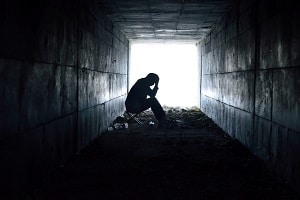Relapses Happen
Relapse isn’t a sure thing, but it is a common occurrence amongst recovering addicts. The good news is that a relapse does not signal the end of your recovery. It’s just a temporary setback. If you or someone you love suffers a relapse, seek medical attention immediately. The sooner you get back on track, the less of an impact relapse will have on your recovery.
Relapse Can Happen Any Time
Many of us assume that we’re immune to relapse when things are going well, and that it’s only during hard times that we have to be on guard. The truth is that relapse can happen anytime, even when you’re feeling great. As your confidence grows and you begin to heal, you may start to feel like you’re in control of your addiction. You may even feel like you’re strong enough to handle casual drug use or drinking. These types of thought patterns can lead to a relapse, even in the best of times.
A Learning Experience
Relapse is hard, and it can be very discouraging. It’s tempting when a relapse occurs to give up the fight and sink back down into addiction. If you can get back on track after a relapse, you’ll find that it’s actually a valuable learning experience. Relapse reveals weaknesses in your recovery plan, and gives you the opportunity to turn them into strengths. You can learn a lot about yourself when bouncing back from a relapse and come back stronger than ever.
Relapse is Preventable
Just because relapse is common doesn’t guarantee that you have to have one. You need to understand that cravings and triggers are a normal part of the process that everyone experiences. Don’t allow guilt over these feelings to drag you down. Have a plan for avoiding and dealing with triggers, and stick to it. Call a friend, attend a meeting, or sleep over at your mom’s house. Decide ahead of time what you need to do to avoid a relapse and then implement your plan when urges come calling.
Lee Williams is licensed as a Substance Use Disorder Counselor and a Certified Social Worker. He graduated from the University of Utah with a Master’s Degree in Social Work and a Bachelor’s Degree in Sociology with Certification in Criminology and Corrections. He is currently working on a Master’s Degree in Public Administration.

